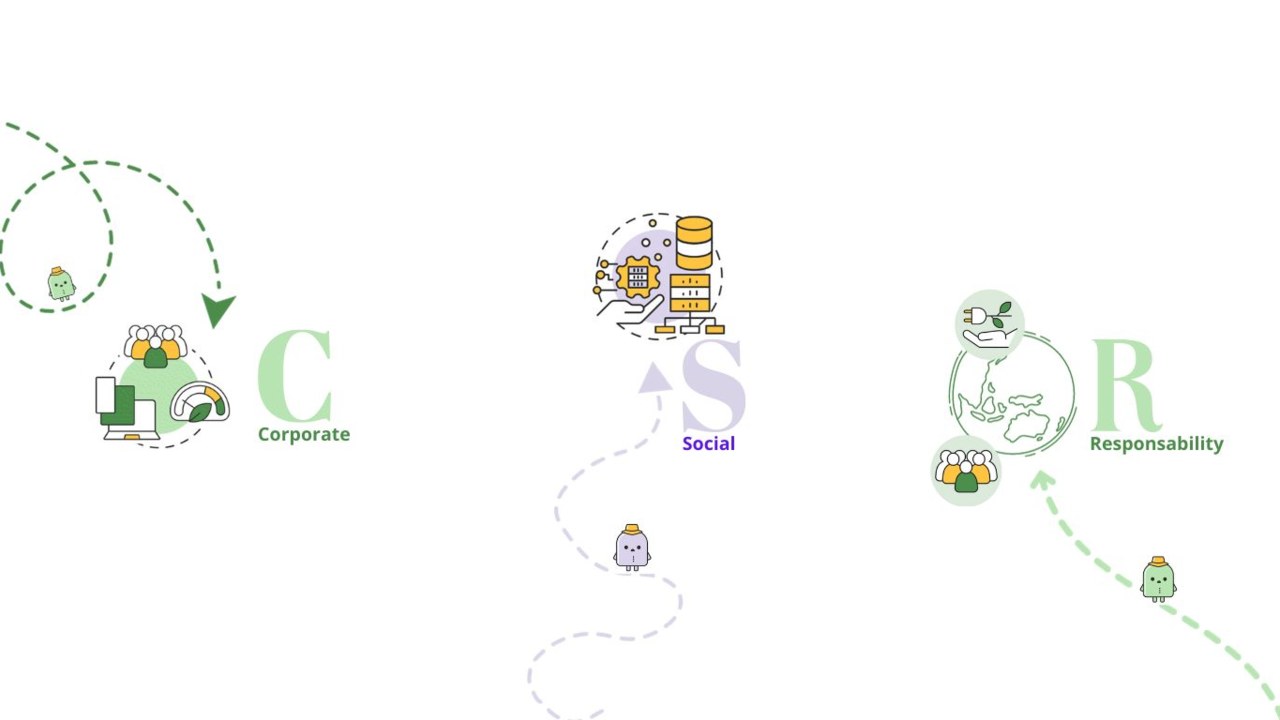This is THE TOPIC of this year 2023 and the current concern of a large number of companies, whether they are SMEs or large multinational corporations, and perhaps even yours: Corporate Social Responsibility, CSR.
In this article, we will explore what CSR is, its three fundamental challenges, and why CSR must be a key concept in business.
What is CSR?
This term, sometimes difficult to understand, is defined as the awareness of companies regarding social, environmental, and economic concerns and their impact on various stakeholders within their organization. Some regulations are put in place and imposed on companies, BUT we must not overlook the "voluntary" aspect of this approach by the company that is dedicated to improving its impact on society as well as the environment.
CSR is part of a sustainable development approach and must follow certain principles such as transparency, sustainability, and ethics.
To establish its proper functioning, CSR relies on three main pillars:

These pillars interact with each other and contribute to the proper functioning of CSR. The objective for companies is to create a positive impact on society and the environment without neglecting the economic aspect. This is what we call sustainable development. Let's delve into the different pillars.
The Social Pillar

Companies seek to minimize their environmental impact by adopting sustainable practices such as reducing energy and resource consumption, reducing air and soil pollution, for example. This pillar encompasses several important concepts for the general public, such as natural resource management, reduction of greenhouse gas emissions, waste management, biodiversity preservation, and the use of renewable energy sources to limit our environmental footprint.
The Environmental Pillar

This pillar concerns respecting human rights, working conditions, quality of work life, health, workplace safety, diversity, inclusion, as well as the development of skills and employee training. It does not only concern the company's employees; it also involves various actors and stakeholders in the company's activities. Companies must, therefore, ensure a safe and fair working environment for their employees, treat their suppliers fairly, and respect the communities in which they operate.
The Economic Pillar

This pillar relates to long-term financial stability, value creation, innovation, corporate governance, and business ethics. Companies must adopt transparent and responsible governance practices, combat corruption, and invest in sustainable projects that promote economic growth while also being socially and environmentally responsible.
Why Adopt a CSR Policy?
However, CSR is not just a constraint. It brings many things that can be beneficial to a company. To name just two, CSR can contribute to improving the quality of life for employees and community members, strengthening the company's ethics and social responsibility, while also helping to protect and preserve the environment for future generations, and providing companies with the opportunity to position themselves as responsible actors.
When we implement a CSR approach, there are many stakeholders involved, what we call "stakeholders." It is important to consider each of them when we wish to implement various actions. Furthermore, it is important to highlight the role of the company in this process.
We are all responsible in our own way for our actions, and through good communication and the implementation of procedures and awareness, we can all reduce the environmental risks of our activities.
See you soon for more CSR infos !
📞 Contact us:
📧 Email: support@dileap.com
Follow us on LinkedIn for the latest scoop!
